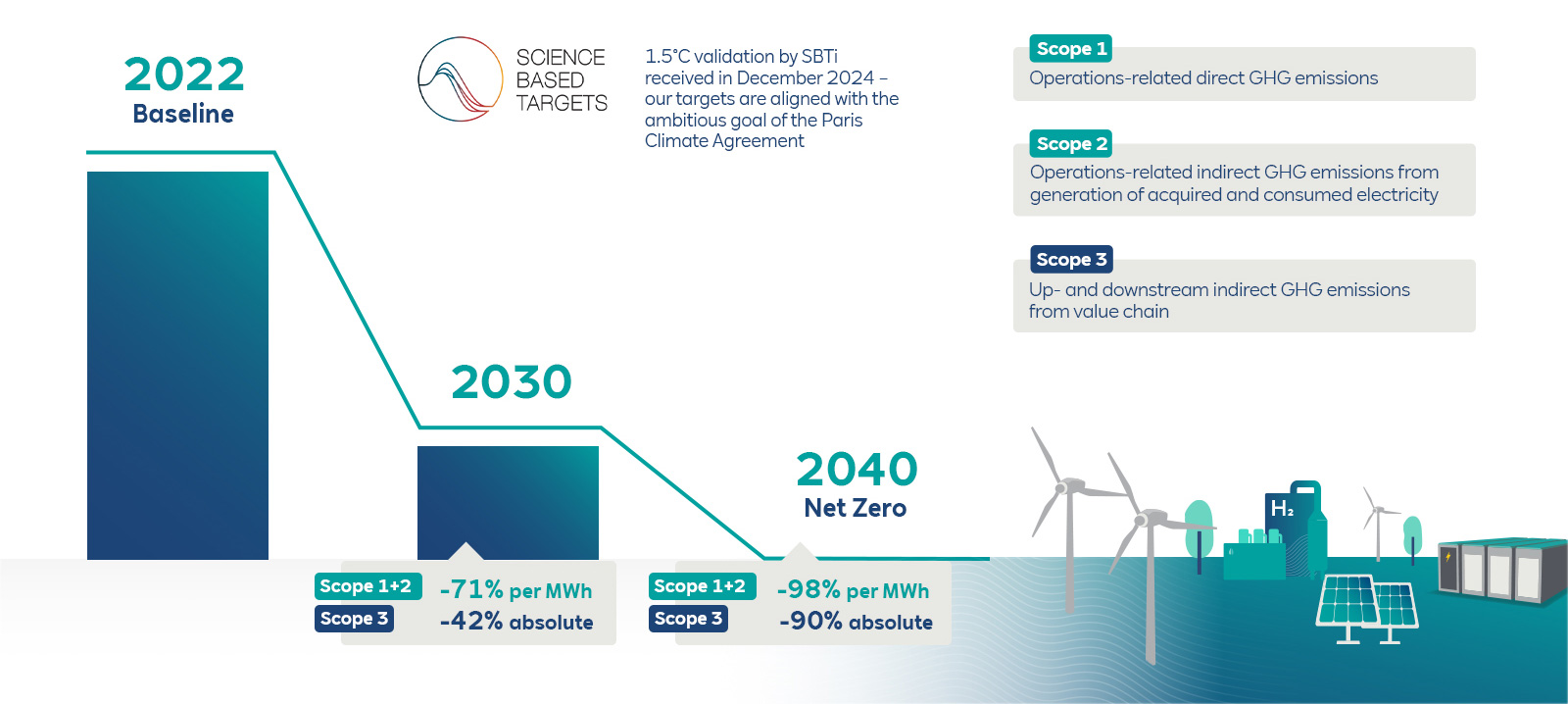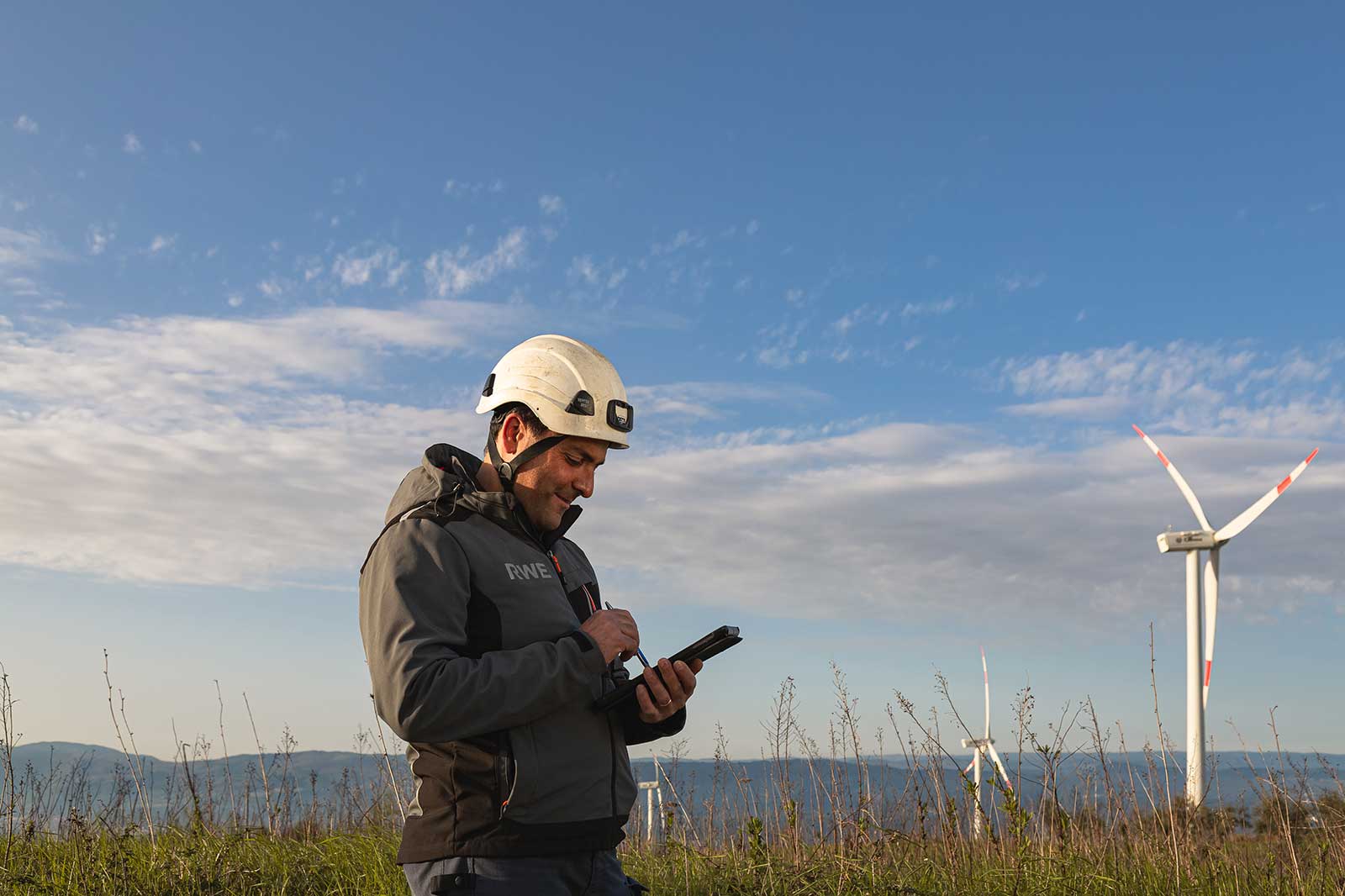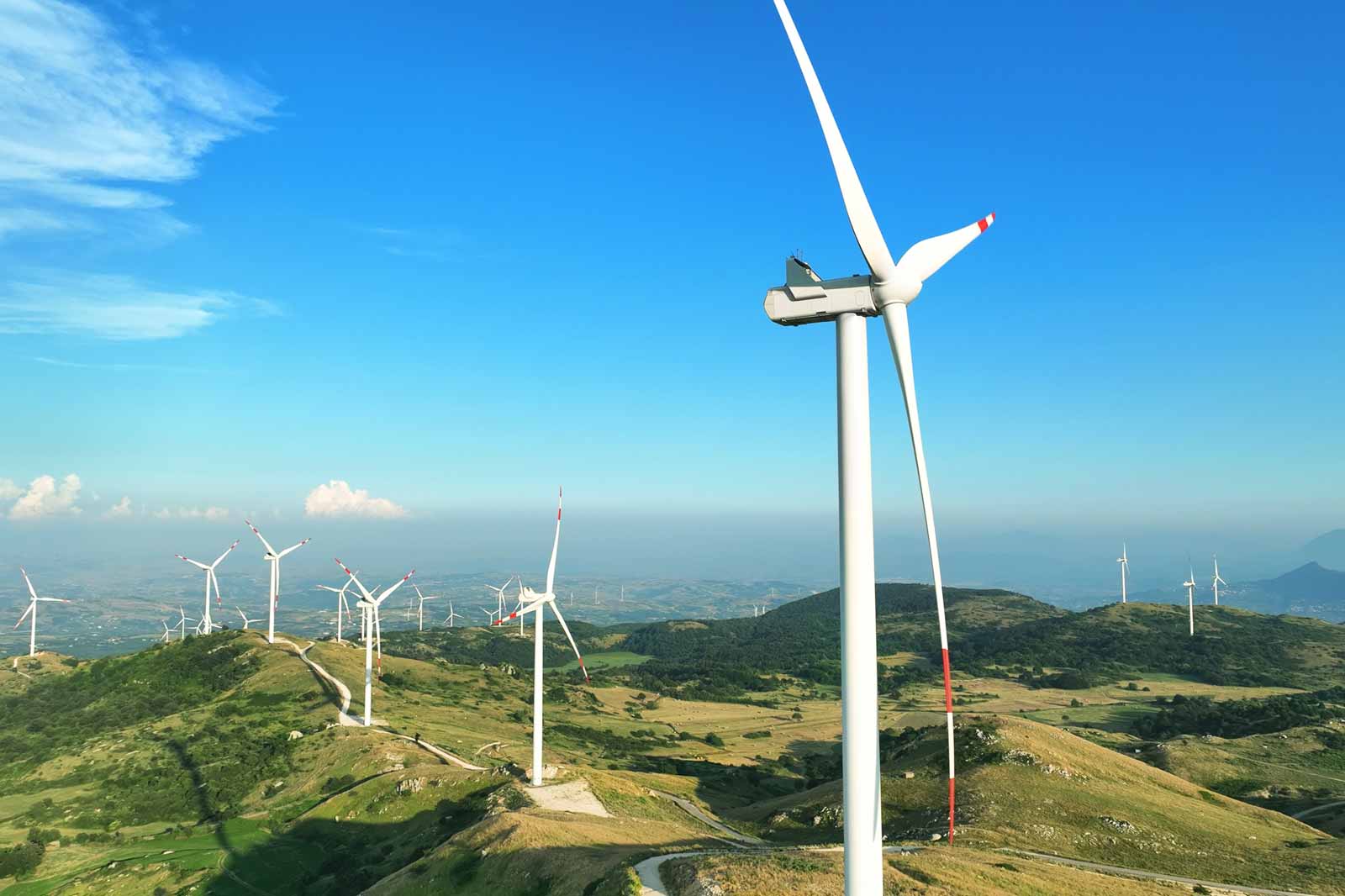Climate change is one of the defining challenges of our time. Rising global temperatures, extreme weather events, and growing climate risks demand urgent action. At the heart of effective climate protection lies the transformation of the energy system – away from fossil fuels and towards low-carbon, sustainable solutions.
Electricity is central to the transformation towards a Net Zero world. As digitalisation, electrification, and industrial decarbonisation accelerate, the demand for affordable, secure, and clean electricity will grow substantially. This makes the shift to renewable energy, flexible generation, and storage technologies not only an environmental imperative but also a societal and economic one.
RWE is committed to shaping the Net Zero energy system of the future. We are phasing out coal by 2030 in a socially responsible manner while investing in renewable energy, storage capacity, and decarbonised flexible generation assets. To date, we have already more than halved emissions from our power plants – and our commitment is clear: we aim to achieve Net Zero emissions by 2040. Our 2030 and 2040 targets are certified by the Science Based Targets initiative and support the 1.5°C target of the Paris Agreement.
As we transform the energy system, we are equally committed to ensuring that the transition is fair and inclusive. RWE takes its responsibility seriously in supporting affected employees. Through dialogue, reskilling initiatives, and a strong commitment to regional development, we aim to make the energy transition a positive opportunity for all.




